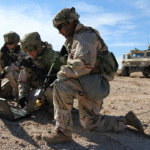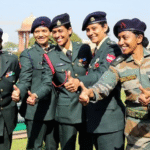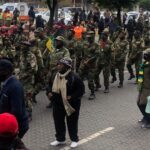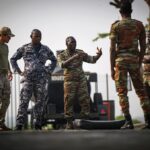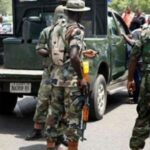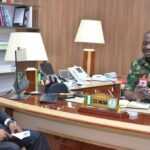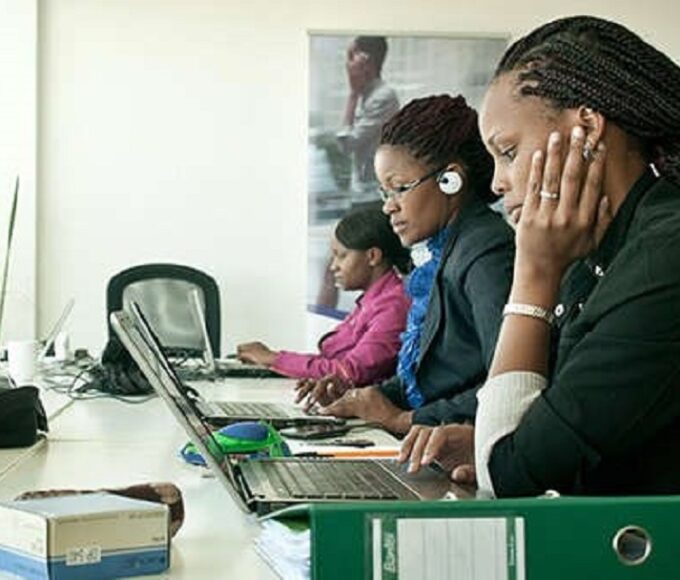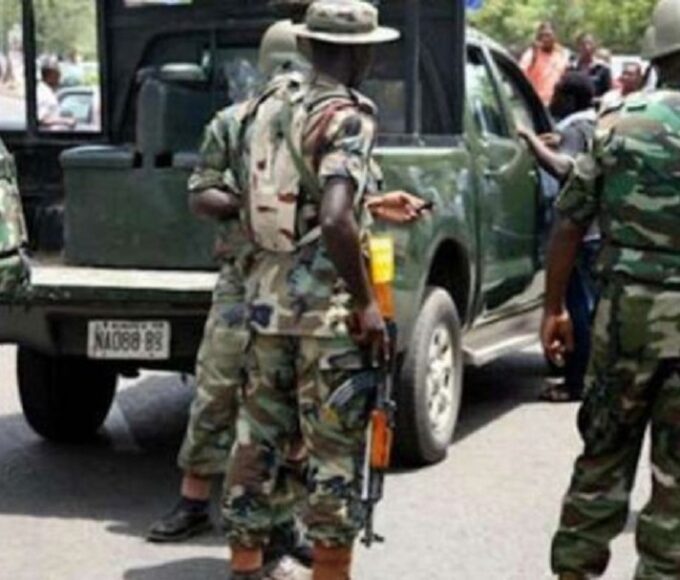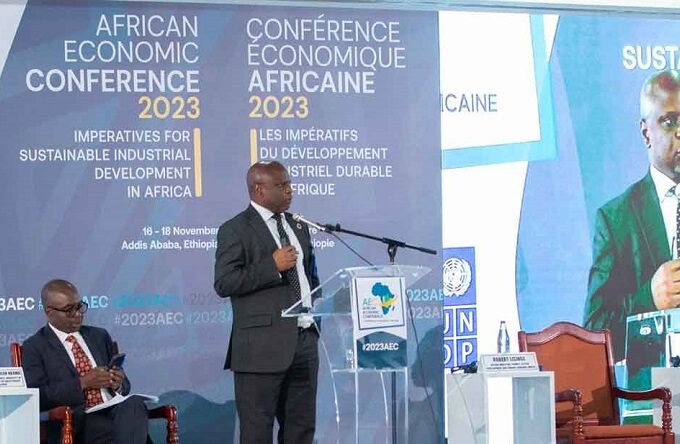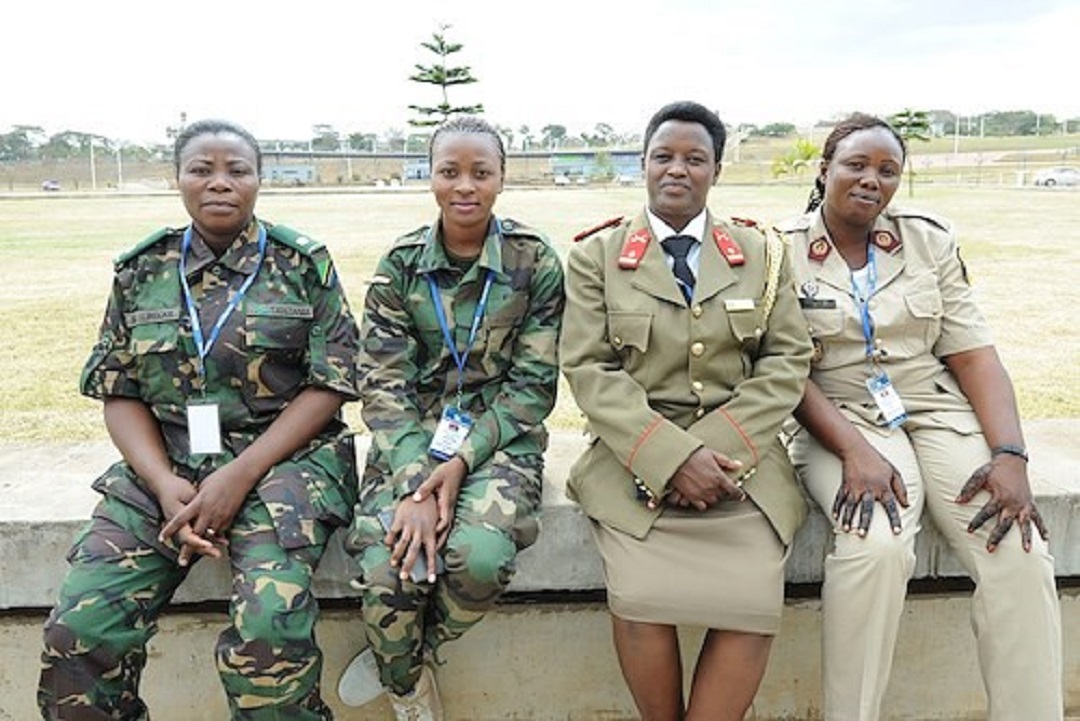
WOMEN IN DEFENCE: THE RISE OF WOMEN IN AFRICAN PARAMILITARY FORCES
The integration of women into African paramilitary and defence forces marks a transformative shift in the continent’s security landscape. Guided by global frameworks like UN Security Council Resolution 1325 and regional initiatives such as the African Union’s Women’s Decade, women are increasingly visible in peacekeeping, intelligence, and internal security roles. Historically confined to support duties, they now serve in combat and command positions. In Nigeria, women constitute 27.9% of peace support personnel, while the South African National Defence Force (SANDF) counts nearly 26% female members evidence of a continent-wide drive for gender inclusivity in security institutions.
Related Article: Defence Chief Reaffirms Military’s Commitment to National Unity as Civil Forums Rally Behind AFN
Women’s participation in African defence systems has deep historical roots. The Dahomey Amazons of 19th-century Benin exemplified elite female warriors long before colonial militaries restricted women to auxiliary roles. Post-independence reforms began dismantling these barriers. South Africa integrated women into all branches of the SANDF in 1995, while Nigeria’s Armed Forces opened the Nigerian Defence Academy to female cadets in the 2000s, initially with limits on combat training. Paramilitary forces bridging military and civilian policing have followed this trajectory. The Nigeria Security and Civil Defence Corps (NSCDC) now deploys women in anti-terrorism and intelligence operations, particularly valuable in regions plagued by insurgency, where female officers engage communities and identify female extremists used in bombings.
Across Africa, policy reforms have been pivotal in accelerating women’s participation. Governments have introduced gender-sensitive recruitment, leadership training, and promotion frameworks. Kenya’s National Action Plan on Women, Peace and Security (WPS) integrates gender perspectives across its defence and police structures, supporting women’s deployment in conflict zones. Nigeria’s Army Women’s Corps, launched in 2018 the first in West Africa enhances female involvement in national defence, gradually expanding from administrative to combat roles. South Africa’s Department of Defence set a 40% female recruitment target in 2010, supported by awareness campaigns to challenge patriarchal attitudes. International partnerships strengthen these domestic efforts. U.S. Africa Command has trained more than 4,000 African women peacekeepers since 2005, while the UN’s Elsie Initiative Fund provides financial incentives to states that increase women’s peacekeeping participation.
Despite progress, systemic barriers persist. Across many forces, women face sexual harassment, poor facilities, biased promotions, and limited access to training. In South Africa, female officers report marginalization at bases like Hoodsport, where equipment remains ill-suited for women. In Kenya, cultural norms restrict women’s combat roles, while in Nigeria, hierarchical biases confine many to administrative positions despite formal equality policies.
The NSCDC, established in 2003, illustrates both the achievements and limitations of gender integration. By 2023, women accounted for 27.9% of peace operations staff, according to General Christopher Musa, Nigeria’s Chief of Defence Staff. Female officers play key roles in counter-insurgency and civil protection, particularly in the volatile northeast. Their presence aids intelligence gathering and boosts community confidence. However, women still encounter unequal access to elite training and slower promotion to command ranks, reflecting broader national trends where policies exist but are inconsistently enforced. Nonetheless, their success in community policing and anti-terror operations highlights the strategic value of gender diversity in paramilitary forces.
Post-apartheid reforms have made South Africa a leader in gender integration within security forces. The South African Police Service (SAPS) tactical response units now include women trained for high-risk operations, contributing to 24% female representation in full-time ranks. Trailblazers such as Brigadier Jackie Sedibe, who advanced gender policy in the 1990s, and Lieutenant Colonel Tiisetso Sekgobela, a UN battalion commander in the DRC, demonstrate women’s growing leadership influence. While harassment and work-life balance remain concerns, initiatives like all-women parades on National Women’s Day reinforce visibility and morale across paramilitary ranks.
Prominent women are redefining Africa’s defence leadership landscape. Marie-Noëlle Koyara, former Defence Minister of the Central African Republic, led post-conflict army reconstruction. Jackline Urujeni of Rwanda commanded a mixed-gender police unit under UNMISS in South Sudan, empowering local women through protection programs. Major General Fatumah Ahmed became East Africa’s first female Air Force Commander in Kenya, while Commodore Faustina Anokye of Ghana broke new ground as Deputy Force Commander in Western Sahara. In Nigeria and South Africa, women now hold senior paramilitary commands, mentoring successors and ensuring a sustainable pipeline of female leadership.
The growing presence of women in African paramilitary forces is not merely a symbolic milestone it is a strategic necessity. Studies link gender-diverse security forces to improved peacekeeping outcomes and stronger community trust. Initiatives like the African Union’s FemWise network, which promotes women mediators, and multinational exercises such as African Lion 2025, which integrate WPS training, underline this trajectory. Yet, real progress requires confronting entrenched biases through stronger anti-harassment enforcement, family-friendly deployment policies, and equitable promotion systems.
King Richard Igimoh, Group Editor ALO
King Richard Igimoh, Group Editor African Leadership Organisation is an award-winning journalist, editor, and publisher with over two decades of expertise in political, defence, and international affairs reporting. As Group Editor of the African Leadership Organisation—publishers of African Leadership Magazine, African Defence & Security Magazine, and Africa Projects Magazine—he delivers incisive coverage that amplifies Africa’s voice in global security, policy, and leadership discourse. He provides frontline editorial coverage of high-profile international events, including the ALM Persons of the Year, the African Summit, and the African Business and Leadership Awards (ABLA) in London, as well as the International Forum for African and Caribbean Leadership (IFAL) in New York City during the United Nations General Assembly.
Recent Posts
Categories
- Air & Aerospace16
- Border Security15
- Civil Security4
- Civil Wars4
- Crisis5
- Cyber Security8
- Defense18
- Diplomacy19
- Entrepreneurship1
- Events5
- Global Security Watch6
- Industry8
- Land & Army8
- Leadership & Training5
- Military Aviation5
- Military History27
- Military Speeches1
- More1
- Naval & Maritime9
- Resources2
- Security12
- Special Forces1
- Systems And Technology9
- Tech6
- Uncategorized3
- UNSC1
- Veterans6
- Women in Defence9
Related Articles
AFRICA’S DEFENCE FUTURE IN A MULTIPOLAR WORLD
Global power is no longer dominated by a small circle of superpowers....
ByKing Richard Igimoh, Group Editor ALOJanuary 2, 2026TECHNOLOGY TRANSFER: WHAT AFRICA GAINS FROM GLOBAL DEFENCE PARTNERSHIPS
As geopolitical alliances realign, African countries are rethinking how they secure their...
ByKing Richard Igimoh, Group Editor ALODecember 18, 2025AFRICA’S DEFENCE INDUSTRIES AT A TURNING POINT
Africa’s defence industries stand at a critical moment. Although the continent spends...
ByKing Richard Igimoh, Group Editor ALODecember 12, 2025PUBLIC-PRIVATE PARTNERSHIPS IN AFRICA’S DEFENCE ECONOMY
Public-private partnerships (PPPs) have emerged as a pivotal mechanism for bolstering Africa’s...
ByKing Richard Igimoh, Group Editor ALONovember 19, 2025


